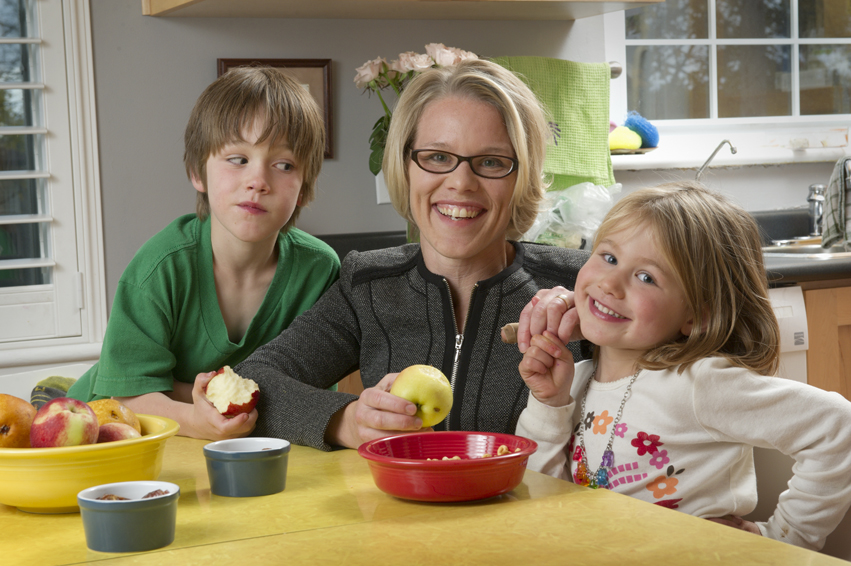Editor’s Note: This article originally appeared in the Toronto Star. Profs. Jess Haines, Family Relations and Applied Nutrition (FRAN), and David Ma, Human Health and Nutritional Sciences, wrote about a U of G study on snacking habits of young children. The research, conducted as part of the Guelph Family Health Study, was led by undergraduate student Joy Hutchinson and Prof. Andrea Buccholz, FRAN.

It’s the bane of every parent’s existence: packing school snacks and lunches. Whether done at the last minute or the night before, the result is often the same — less healthy options than what your kids eat at home.
And now this: we may be packing better provisions for our sons than our daughters.
In a new study, our research team compared the snacking behaviour of kids between 18 months and 5 years of age and found that girls tend to eat more sugar-filled snacks than boys. Not only did boys eat fewer sugary snacks, but they also ate more snacks containing a food group from Canada’s Food Guide.
Why the difference?
Further research is needed to determine the exact reason. It could be linked to genetics. Girls may have different taste receptors for sugar, and may ask for these types of snacks more than boys.
Or maybe it’s a societal difference in how we treat our daughters and sons. Maybe parents use sweet treats to reward girls more than boys.
Whether nature or nurture is the cause, differences in snacking behaviour are worth studying. Snacks make up a third of the caloric intake for Canadian children, and eating behaviours established as kids last a lifetime.
As part of the Guelph Family Health Study at the University of Guelph, we are looking at parenting practices, and specifically how parents influence kids’ snacking habits by restricting or promoting certain foods.
In the recent study, we found packaged cookies, fish crackers and granola bars are at the top of the snack food list. These sweet and salty snacks are replacing healthy ones. So much so that previous research has found Canadian children are falling short of several daily dietary recommendations on school days because they aren’t eating enough fruit, vegetables and dairy products. One effective way to fix this is to change the snacks we are putting in our children’s lunches.
Now before we as parents all throw our hands up in despair, there are some simple changes we can make to improve children’s school snacks.
For starters, we can stop viewing a snack strictly as a processed food that comes in individual packages. An apple, some nuts, whole grain crackers or carrot sticks can all be snacks.

If these options aren’t exciting enough for your child, you can throw in some hummus or another type of dip to boost the flavour.
We can also view smaller meal portions as potential snacks. Making half a sandwich or packing a smaller portion of last night’s dinner provides a snack that is full of nutrition. Research shows children tend to eat most of their vegetables and fruits during mealtimes, so packing leftovers ensures that our kids get more servings from these food groups.
Even as we bump up the fruits and vegetables our kids take to school, we also need to decrease the number of treats in their lunch bags.
Many parents pack special treats, especially on the first day or first week of school, because we want our kids to have the best experience possible. But that just boosts kids’ expectations for a year of treat-filled lunches. We need to teach our kids that sugary and salty snacks are for special occasions and not a staple in school lunches.
Ultimately when you set out to pack that first lunch of the school year, whether it’s for your son or daughter, just keep in mind that what you’re packing is the energy they need to be at their best for the day. And hang in there. It’s only another 10 months before you catch your next break from the dreaded school lunches.
David Ma is director of the Guelph Family Health Study at the University of Guelph. He is also the father of three school-aged children. davidma@uoguelph.ca
Jess Haines is associate director of the Guelph Family Health Study at the University of Guelph. She is also the mother of two school-aged children. jhaines@uoguelph.ca